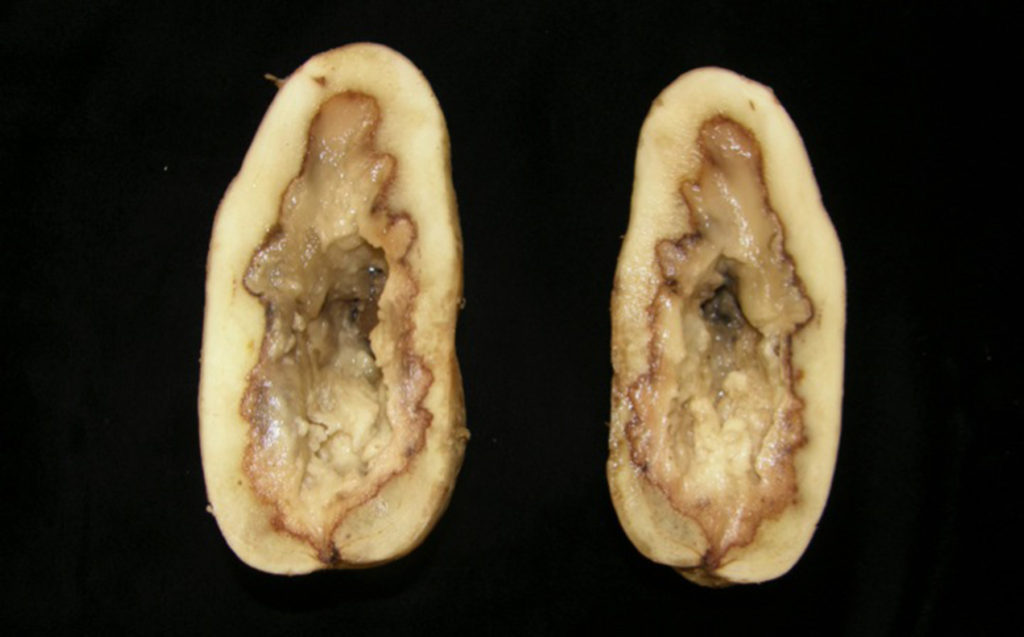
Getting a handle on dickeya
Researchers need more samples to validate testing
Amy Charkowski and Gary Secor need potato samples from this year’s harvest. They need the harvest samples in their effort to develop faster tests for the bacterial disease blackleg, which is caused by dickeya. Current tests are working well, but additional improvements would reduce costs and increase testing speed.
Charkowski, the new head of Colorado State University’s Bioagricultural Sciences and Pest Management department; Secor, professor of plant pathology at North Dakota State University; the University of Maine’s Jay Hao; and Jaylee Fox of the Maine Potato Board have been trying to develop dickeya testing protocols for labs in the United States.
At the National Potato Council’s 2016 summer meeting in Park City, Utah, Charkowski said that the disease has been confirmed in 16 states and two Canadian provinces. She said that there have been three genotypes of dickeya found in the U.S. but 90 to 95 percent of the disease is Dickeya dianthicola.
Charkowski said that dickeya shares similar characteristics with the blackleg pectobacterium.
“These two types of pathogens (dickeya and pectobacterium) have similar symptoms and there’s multiple species out there,” she said. “It’s been a difficult situation to get a handle on and so this caused significant challenges in figuring out protection methods and figuring out epidemiology.”
“The main charge that Amy and I have had is trying to get a standardized protocol that is useful for the whole industry,” Secor said.
He said that recent testing of samples sent to seven labs came back with a correlation of 98.6 percent agreement in their testing.
“We determined which testing works and that the seven labs were given the same samples and got the same results. So it validates the testing and that the labs are using the protocols appropriately,” Charkowski said. “All are PCR based tests. The labs aren’t doing identical tests but they’re all getting equivalent answers and I believe all the laboratories do two tests to eliminate the chance of false positive results.”
Charkowksi said that more labs want to be validated in the testing procedure and that they need more samples from growers.
“We’re hoping for 10 samples per seed state if at all possible,” she said. “The other thing that people are working on is trying to multi-plex ring rot and blackleg testing together so that we can run the same sample for both pathogens. We would need more grower samples for that as well.”
If you’re interested in participating in the testing program, contact Amy Charkowski at 608-333-4759 or [email protected] or Gary Secor at 701-231-7076 or [email protected].
Labs available to test for dickeya:
Gary Secor
North Dakota State University
Jaylee Fox
Maine Potato Board
Brian Hudelson
Plant Disease Diagnostic Clinic
University of Wisconsin-Madison
Brooke Weber and Andy Witherell
Wisconsin Seed Potato Certification Program
Jay Hao
University of Maine
Mathuresh Singh
New Brunswick Agricultural Certification Services
Jesse Ostrander
North Dakota State University Plant Diagnostic Lab
Bill is managing editor of Spudman. Email him at [email protected].







